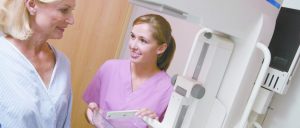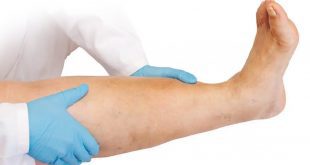 As the busy fall season is upon us, it is easy for women to push their healthcare needs to the background, as everything else seems to take priority. InterCommunity Cancer Center encourages women to be proactive about their health and not postpone preventative cancer screenings, especially when it comes to breast cancer.
As the busy fall season is upon us, it is easy for women to push their healthcare needs to the background, as everything else seems to take priority. InterCommunity Cancer Center encourages women to be proactive about their health and not postpone preventative cancer screenings, especially when it comes to breast cancer.
This year in Florida, 2,910 mothers, sisters, aunts, grandmothers and wives will die from breast cancer, and 18,170 women in our state will be diagnosed with the disease, according to the American Cancer Society. It is the most common cancer among American women, except for skin cancers. Roughly 12 percent of all U.S. women, or about one in eight, will develop invasive breast cancer during her lifetime.
Who Is At Risk?
All women are at risk for the disease to a certain degree. Breast cancer is 100 times more common in women than in men, possibly due to estrogen and progesterone hormones that may fuel breast cancer cell growth. Risk increases as women age, and roughly two out of three invasive breast cancers are found in women 55 or older.
Menstrual history also plays a role in the disease. Women who start menstruation before age 12 and/or begin menopause after age 55 have a slightly higher risk of breast cancer, possibly due to a longer lifetime exposure to estrogen and progesterone.
Women who carry certain hereditary genes, such as BRCA1/2, also are at an increased risk for the disease, as well as for other cancers. Genetic testing can determine if a woman has a mutated BRCA1/2 gene, and women should have a detailed discussion with their doctor to help determine if testing would be beneficial.
Lifestyle Changes Can Reduce Risk
There are no guaranteed ways to prevent breast cancer, but risk can be reduced by altering your lifestyle.
. Stop smoking
. Get to a healthy weight after menopause and maintain it
. Exercise ―The Women’s Health Initiative found 1 1/4 to 2 1/2 hours a week of brisk walking reduced risk by 18%
. Stop hormone replacement therapy
. Eliminate or reduce alcohol consumption
Breast Cancer Symptoms
It is important to know how your breasts normally look and feel so any abnormalities can be detected early. The most common symptom is a breast lump or mass, which is usually painless. Soft or rounded masses are less likely to be cancerous than a hard mass with irregular edges. Other symptoms to watch for include breast changes, such as swelling, tenderness, skin irritation, or nipple abnormalities. Breast pain is usually caused by benign conditions and is not a common indication of breast cancer.
Schedule Your Mammogram Today!
Mammography is a valuable screening tool that can find cancer early, especially in women over 50. The earlier breast cancer is found, the more treatable it is. InterCommunity Cancer Center (ICCC) in Lady Lake, Fla., encourages all women who have not had their mammogram this year to schedule it now. Screening for women at average risk should start at age 40 and be done annually.
“Fall is a great time to think about breast cancer prevention, as Breast Cancer Awareness Month is right around the corner in October,” said Dr. David Catalano, medical director and radiation oncologist at ICCC. “It is a good time to schedule a mammogram, as well as commit to lifestyle changes that might reduce breast cancer risk.”
Over the last decade, many new breast cancer treatments have been developed. InterCommunity Cancer Center is at the forefront of bringing advanced radiation therapies for breast cancer to the region, giving patients the opportunity to receive these promising treatments in their local community where they live and work.
For more information about InterCommunity Cancer Center, visit www.usoncology.com and search for InterCommunity Cancer Center.
ABOUT INTERCOMMUNITY
CANCER CENTER
InterCommunity Cancer Center (ICCC) has more than 30 years of experience providing quality, personalized cancer care in the Lady Lake and Leesburg communities and has treated more than 10,000 patients. Medical Director and Radiation Oncologist Dr. David J. Catalano has expertise in treating breast, lung, prostate, gynecologic, skin and other cancers.
ICCC is an affiliate of The US Oncology Network (“The Network”). This collaboration unites ICCC with more than 1,400 independent physicians dedicated to delivering value-based, integrated care for patients — close to home. Through The Network, these independent doctors come together to form a community of shared expertise and resources dedicated to advancing local cancer care and to delivering better patient outcomes. The US Oncology Network is supported by McKesson Specialty Health, whose coordinated resources and infrastructure allow doctors in The Network to focus on the health of their patients, while McKesson focuses on the health of their practices. For more information, visit www.usoncology.com.
Check Also
Obstructive Sleep Apnea & Oral Appliances: A Solution for a Good Night’s Sleep
By Richard W. Rozensky, DDS, D.ABDSM Sleep apnea affects more than 25 million people in …
 Central Florida Health and Wellness Magazine Health and Wellness Articles of the Villages
Central Florida Health and Wellness Magazine Health and Wellness Articles of the Villages



